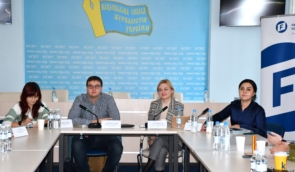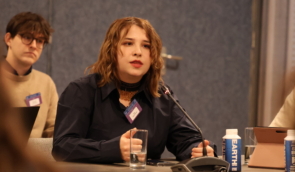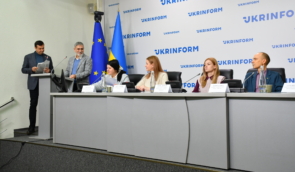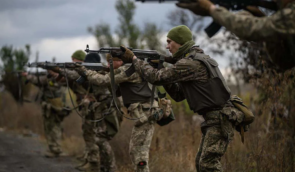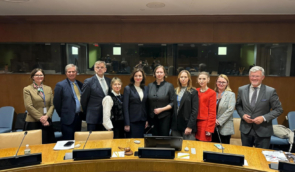Persecution of Ukrainian civilians in the occupied territories as crime against humanity: side event at the OSCE SHDM I
ZMINA in cooperation with Media Initiative for Human Rights, Ukrainian Legal Advisory Group, Crimea SOS, Physicians for Human Rights, World Organization Against Torture (OMCT) and with support of the Mission of Ireland to OSCE and Human Rights House Foundation will hold the OSCE Supplementary Human Dimension Meeting I side event on the topic “Persecution of Ukrainian Civilians in the Occupied Territories as Crime Against Humanity: Civil Society’s Efforts in Restoring Justice” on April 22 at 12:30 at Bibliotheksaal.
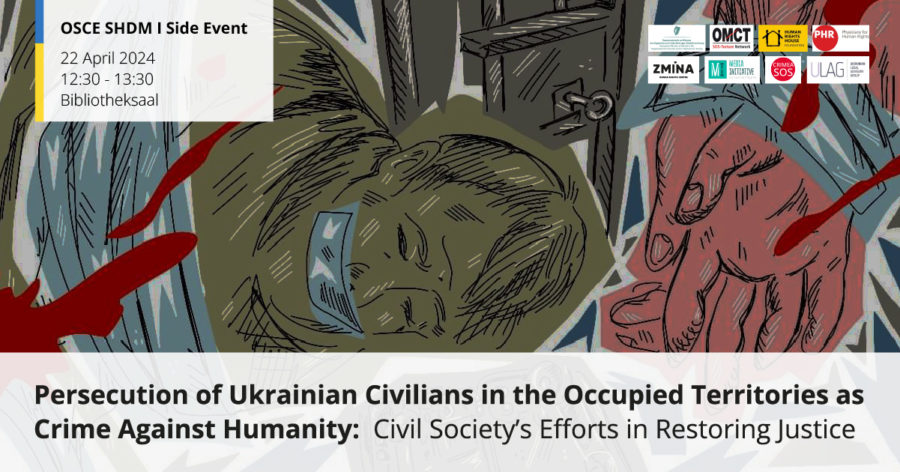
Despite the high risks, Ukrainian human rights organizations together with international partners continue documenting and investigating international crimes committed by Russian Federation-controlled forces against civilians in the occupied territories of Ukraine. Applying international standards, Ukrainian human rights defenders carry out regular field missions to liberated territories, conduct interviews with victims and witnesses, and undertake open source intelligence to obtain credible and robust evidence that may be used by domestic and international accountability mechanisms.
The evidence gathered indicates that the Russian military and special services have executed comprehensive filtration measures in the occupied territories aimed at scrutinizing the population to identify those civilians with actual or perceived support for the Ukrainian state, equated with opposition to the Russian invasion of Ukraine.
Once identified, representatives of the persecuted group underwent arbitrary detention, enforced disappearance, torture and other ill-treatment while in detention. This included sexual violence and, in some cases, unlawful killings, forcible deportation to Russia or denial of the right to a fair trial. Occupation administrations also coerce Ukrainians into obtaining Russian passports or face restricted access to healthcare and social benefits, instilling fear and suppressing resistance, putting both patients and healthcare workers at risk of persecution.
The pattern of attack against civilians by the Russian military forces and security services shows intent to discriminate against a specific political group in a systematic and pre-planned way. Yet the question remains, whether the existing justice architecture is sufficient to ensure justice for such acts, as well as other grave crimes committed in the course of the war.
At the event will be discussed:
- Preliminary findings of the CSOs investigation, including the main patterns and trends of documented crimes
- Widespread practices of enforced disappearances and arbitrary detention: current situation and ways to address it
- Civil society’s work on the ground: challenges and results
- The role of civil society and the international community in ensuring justice
- Recommendations to the OSCE and individual countries
Panelists:
- Yelyzaveta Sokurenko, Human Rights Centre ZMINA
- Lyubov Smachylo, Media Initiative for Human Rights (MIHR)
- Arie Mora, Ukrainian Legal Advisory Group (ULAG)
- Sabina Ilias, Crimea SOS
- Eugenia Andreyuk, World Organisation Against Torture (OMCT)
Moderator: Ms. Anne-Marie Callan, Ambassador and Permanent Representative of Ireland to the OSCE
Contact person: Tetiana Zhukova, Human Rights Centre ZMINA, tz@zmina.ua
If you have found a spelling error, please, notify us by selecting that text and pressing Ctrl+Enter.

